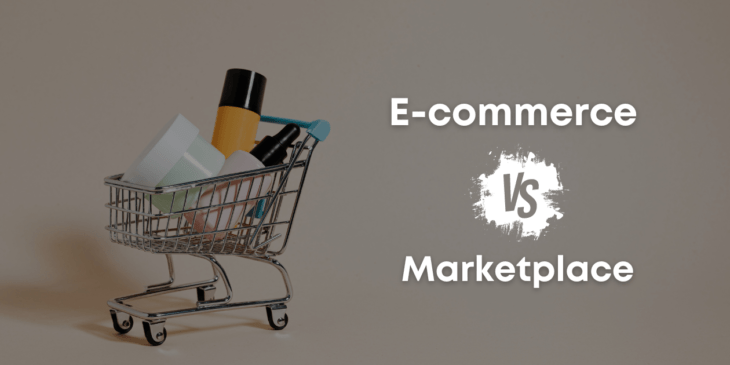
E-commerce and marketplaces are two of the most popular concepts booming in today’s world. Significantly, COVID-19 empowers businesses to create e-commerce platforms or sell on the market.
Facebook, Amazon, eBay, Walmart, and many other marketplaces have established themselves, and people have started creating brands to sell their products. Some e-commerce platforms, like Shopify, are giving people an opportunity to launch their stores.
Here are some differences between e-commerce stores and marketplaces:
Financial Risk
The first thing that comes to mind while starting your own business is managing the finances. You may need more investment. In this case, you need a marketplace to launch your product at minimum risk.
If you have an e-commerce store, it will take a lot of money and investment to market it separately. It will also take years to build a brand and to attract loyal customers who will directly visit your website.
Customer base
In the marketplace, you can launch your product directly with your competitor, and you can find a shelf to showcase your product to the customer. It’s hard for customers to try, but when they compare prices, they can trade off.
You have a presence in e-commerce stores. However, you need to invest a lot of money just to convince customers to purchase your product for the first time. It takes a lot of time and effort to create your brand awareness in the market.
Shopping experience
The shopping experience is one of the essential things that makes the customer repeat the purchase. In the marketplace, the customer doesn’t experience any specific brand experience. The main concern is to find the best product at an affordable price. It’s hard for the new brand to maintain its position.
E-commerce stores, on the other hand, are responsible for delivering value and an experience. This means that your website designs and all the UX/UI should be responsive to the customer. It requires a large investment, but once customers become loyal, they will repeatedly buy the product.
Control over store
In the online marketplace, you have to open your shop in the marketplace. You have some limited controls, like posting products, adding descriptions, and adding photos. Even on some stores, you can sell other products.
In e-commerce, profit and risk are yours. When you have a large number of customers at your online store, you don’t need to worry about anything else. You can customize your stores according to your own wishes.
Potential customers
If you are new, it’s hard for your customers to trust your product. Here, the marketplace helps you win the trust of a large customer base. You can sell your products to potential customers and build trust.
Daraz offers daraz mall. You can get a Daraz Mall certification to sell your products to potential customers. This will result in more sales than an e-commerce website without extra marketing expenses.
E-commerce stores, on the other hand, need a strenuous effort to market your product to your potential customers. Most businesses have to shut down after a few months due to the high cost of operations.
Which one is best for the business?
In my opinion and experience, you need to start with the marketplace that helps you differentiate between your competitors and your products. You also need to create a customer base that only loves your product.
After that, you need to move to your store, which will help you earn from those customers. Spending the budget on advertisements is easy, as people already know about your brand. So, you can efficiently market with the highest ROI on the business.
Final Thoughts
Both can be used depending on the level of your business. In the first stage, you need a marketplace that helps you create awareness about your product.
Once you achieve that target, you have customers! You can open a store to sell products directly to your customers through your separate online shop or store.